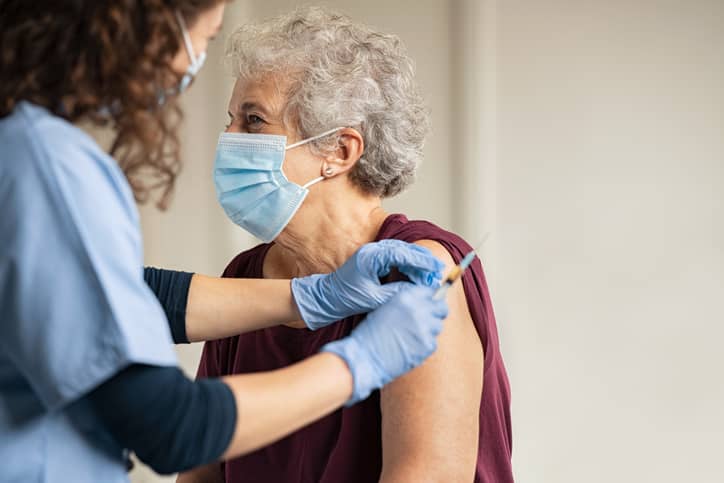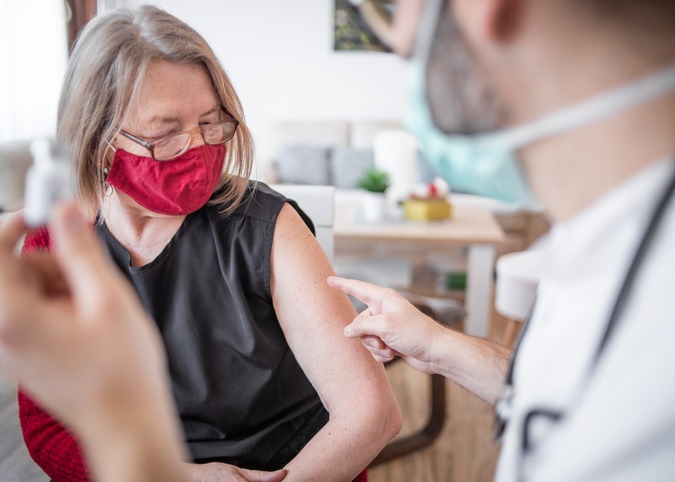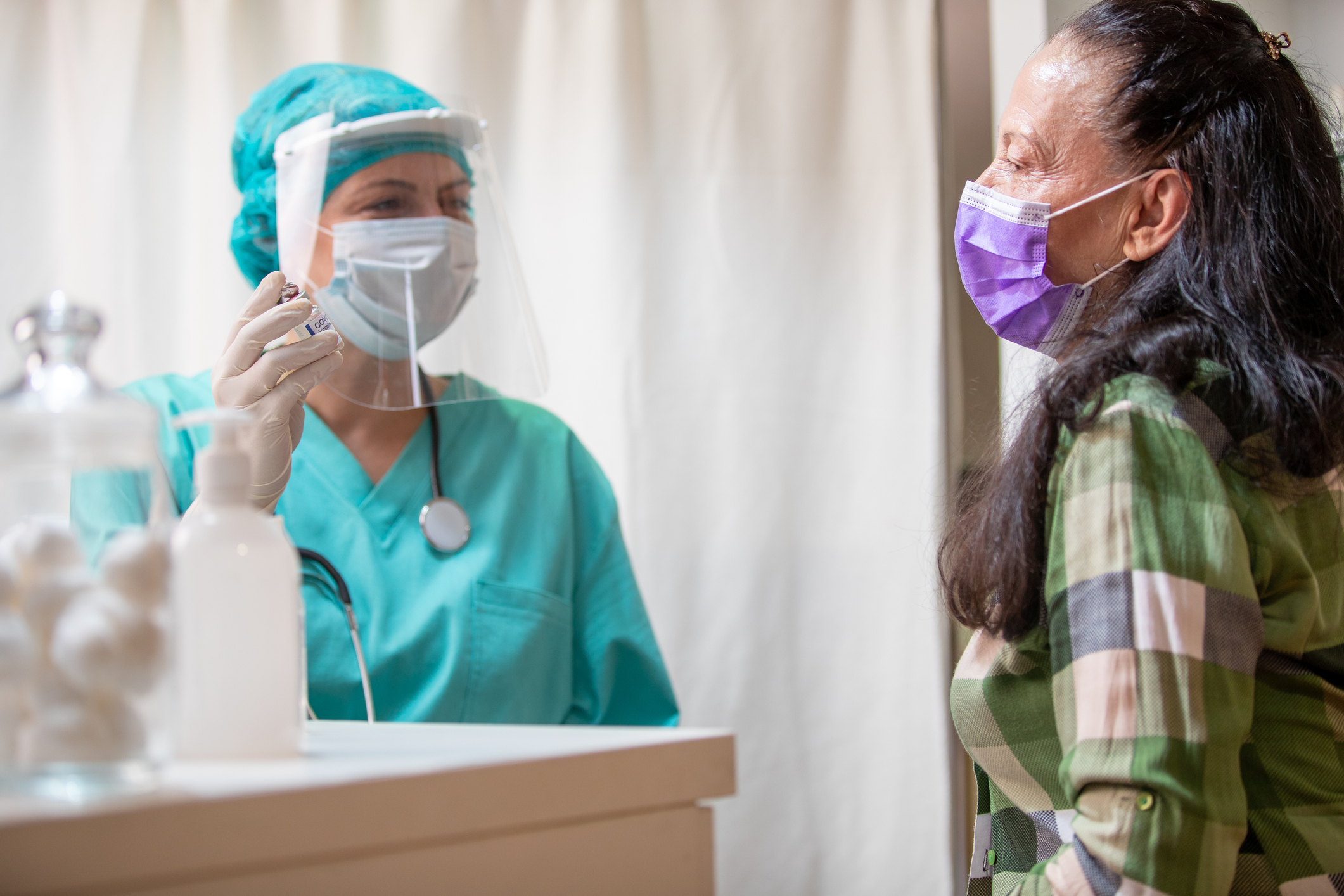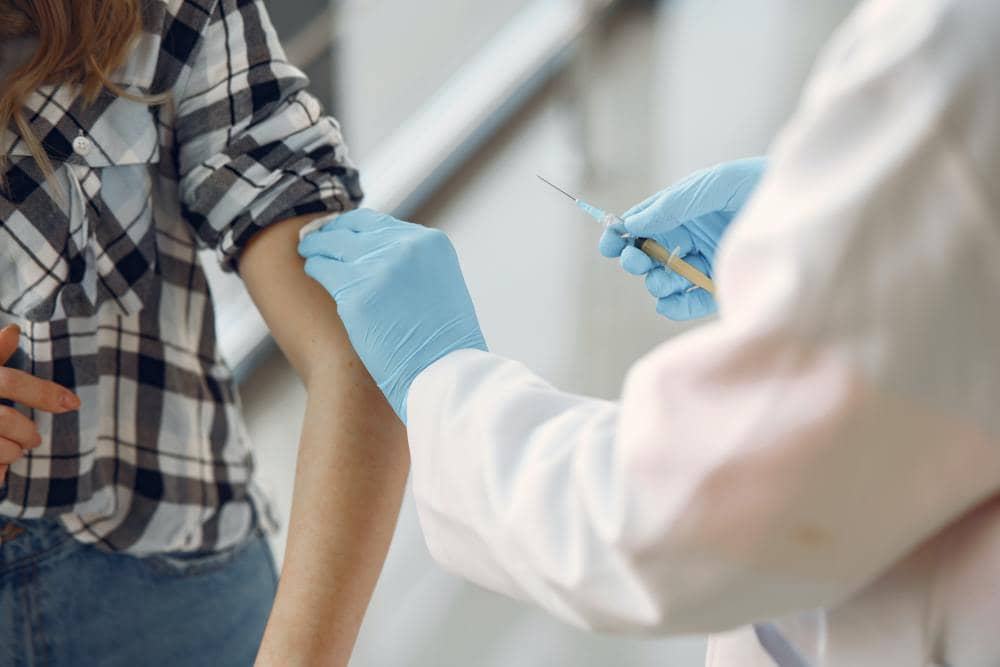Note: This story was first published on 17 March 2021 and last updated on 8 April 2021. Healthily will continue to update this story as new information becomes available.
Some countries have paused using the Oxford/AstraZeneca coronavirus vaccine after a number of people who were given it had blood clots afterwards.
While many of these countries have since started using it again, advice on how it should be used has now changed.
Read on to learn more about the link between blood clots and the Oxford/AstraZeneca vaccine, and what the experts say.
When to get medical help urgently
If you develop any of the following symptoms 4 days to 4 weeks after being vaccinated against COVID-19, you should get medical help urgently:
- new onset of severe headache, which is getting worse and does not respond to simple painkillers
- an unusual headache which seems worse when lying down or bending over, or may be accompanied by blurred vision, nausea and vomiting, difficulty with speech, weakness, drowsiness or seizures
- new unexplained pinprick bruising or bleeding
- shortness of breath, chest pain, leg swelling or persistent abdominal pain
Is there a link between blood clots and the Oxford/AstraZeneca vaccine?
The European Medicines Agency (EMA) has said that unusual blood clots combined with low blood platelets should be listed as a very rare side effect of the Oxford/AstraZeneca vaccine.
It said in a statement: “EMA is reminding healthcare professionals and people receiving the vaccine to remain aware of the possibility of very rare cases of blood clots combined with low levels of blood platelets occurring within 2 weeks of vaccination. So far, most of the cases reported have occurred in women under 60 years of age within 2 weeks of vaccination. Based on the currently available evidence, specific risk factors have not been confirmed.”
The EMA has said a possible reason for this could be because of how the immune system responds to the vaccine. It has asked for more research to be done to get more information.
It adds that the overall benefit of the vaccine still outweighs the risk: “COVID-19 is associated with a risk of hospitalisation and death. The reported combination of blood clots and low blood platelets is very rare, and the overall benefits of the vaccine in preventing COVID-19 outweigh the risks of side effects.”
The chance of developing these blood clots after having the vaccine appears to be extremely low – 1 in 250,000. By comparison, the chance of dying in a road accident within a year is 1 in 20,000 in the UK and 1 in 7,000 in the US.

Who shouldn’t get the Oxford/AstraZeneca vaccine?
People who had blood clots after their first dose of the Oxford/AstraZeneca vaccine shouldn’t get their second dose of this vaccine.
Other groups of people should only get the Oxford/AstraZeneca vaccine if their doctor advises them that the benefits outweigh the risks. These groups include:
- people at higher risk of blood clots because of a medical condition
- pregnant women
Some countries are not giving the vaccine to people in certain age groups. For example, some European countries and Canada are not giving it to people under 55. And in the UK, people under 30 will be offered an alternative vaccine.
What should I do if I’m worried about the safety of the vaccine?
“If you're due to have the vaccine, the safest thing to do is to go ahead and have it, unless you are in a group that has been advised to have an alternative vaccine, ” says Healthily Chief Medical Officer, Professor Maureen Baker. “For most people, the risk of severe illness or death from COVID-19 far exceeds any risk from the vaccine. We should also remember that every drug or vaccine, even very commonly used ones such as aspirin or paracetamol, can potentially have serious, or even fatal, side-effects.”
“Generally, it isn't possible to choose which vaccine you can have. You should take the first one offered to you. The approved vaccines are safe and effective and have now been administered to hundreds of millions of people across the world.”
Key points
- advice on how the Oxford/AstraZeneca COVID-19 vaccine should be used has changed
- if you have any of the symptoms above, you should get medical help urgently
- the European Medicines Agency (EMA) has said that unusual blood clots combined with low blood platelets should be listed as a very rare side effect of the vaccine
- EMA has said the overall benefit of the vaccine still outweighs the risk
- people who had blood clots after their first dose of the Oxford/AstraZeneca vaccine shouldn’t get their second dose
- other groups of people should only get the Oxford/AstraZeneca vaccine if their doctor advises them that the benefits outweigh the risks






